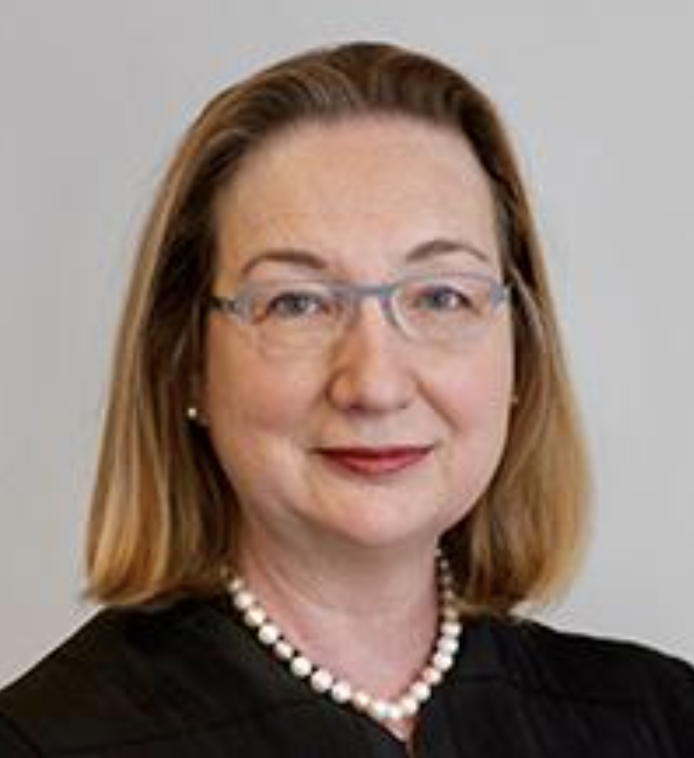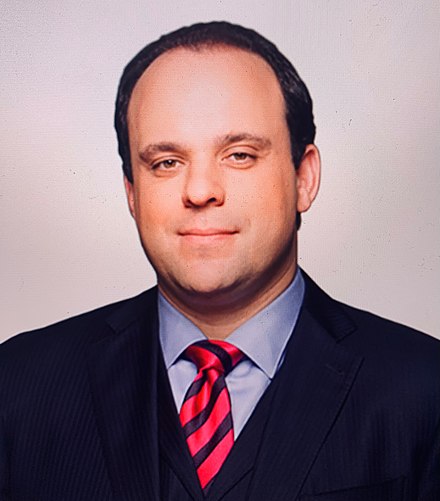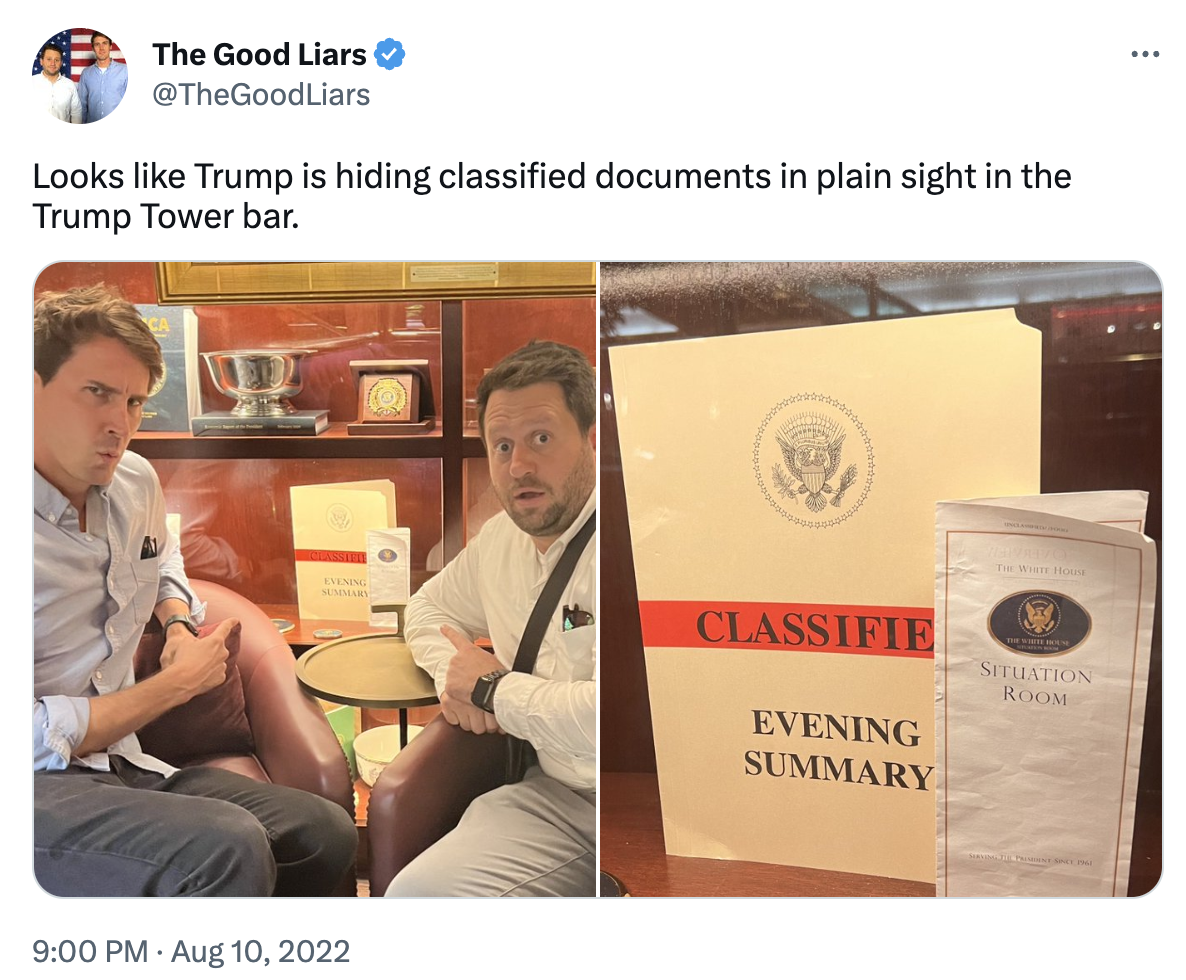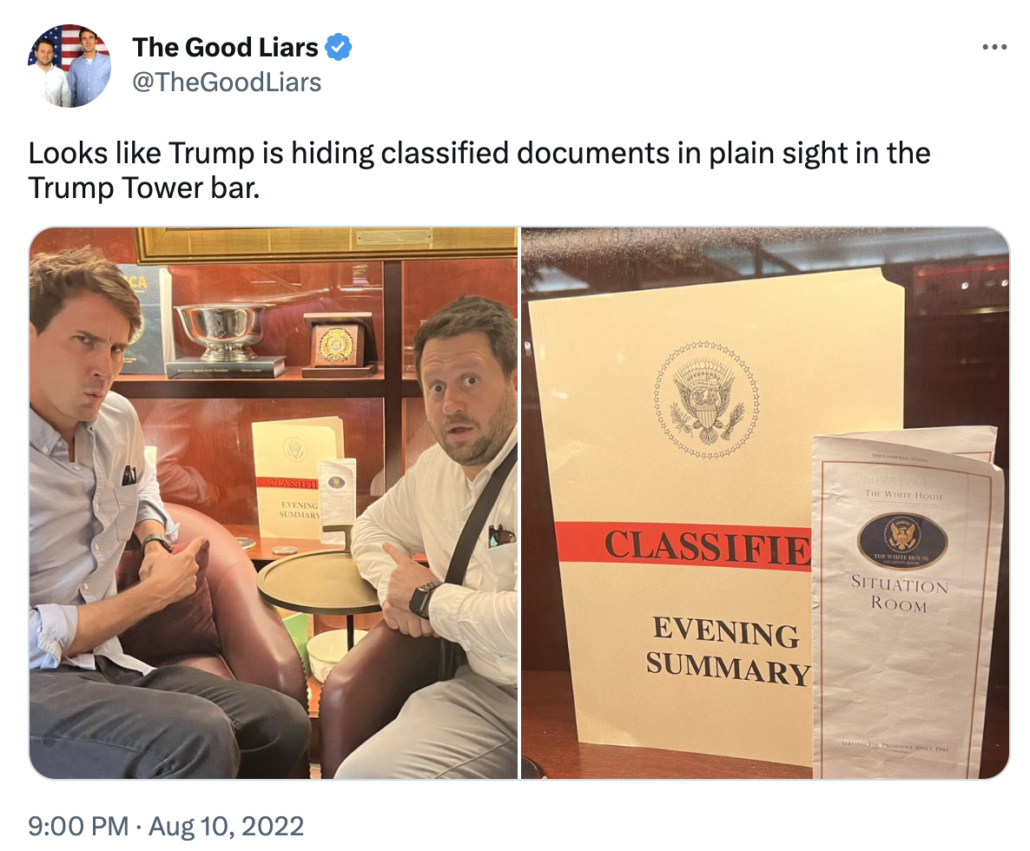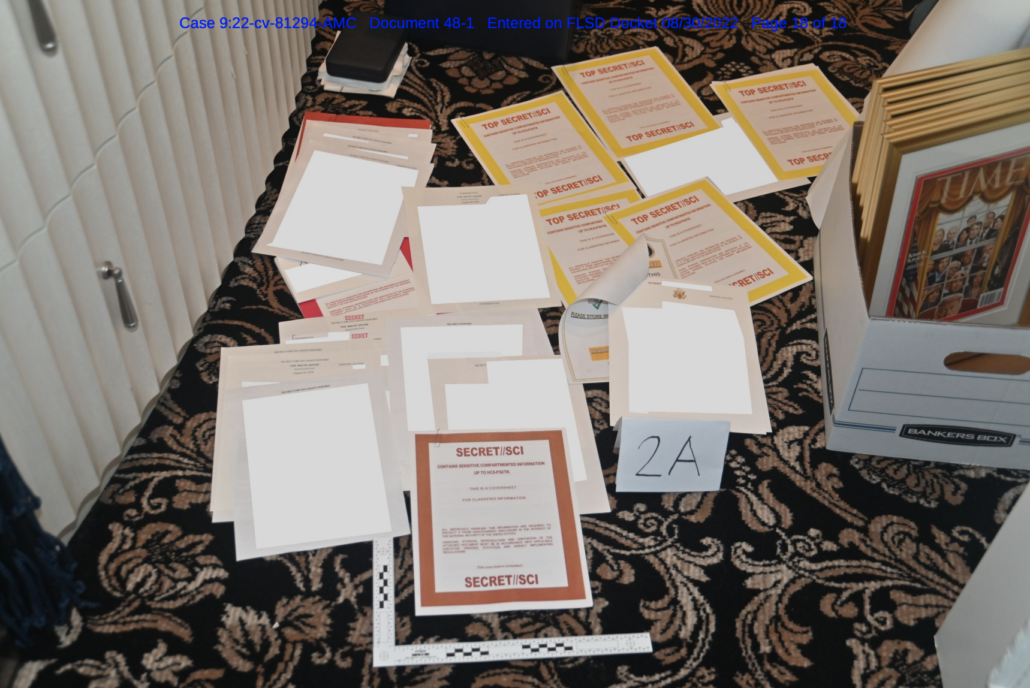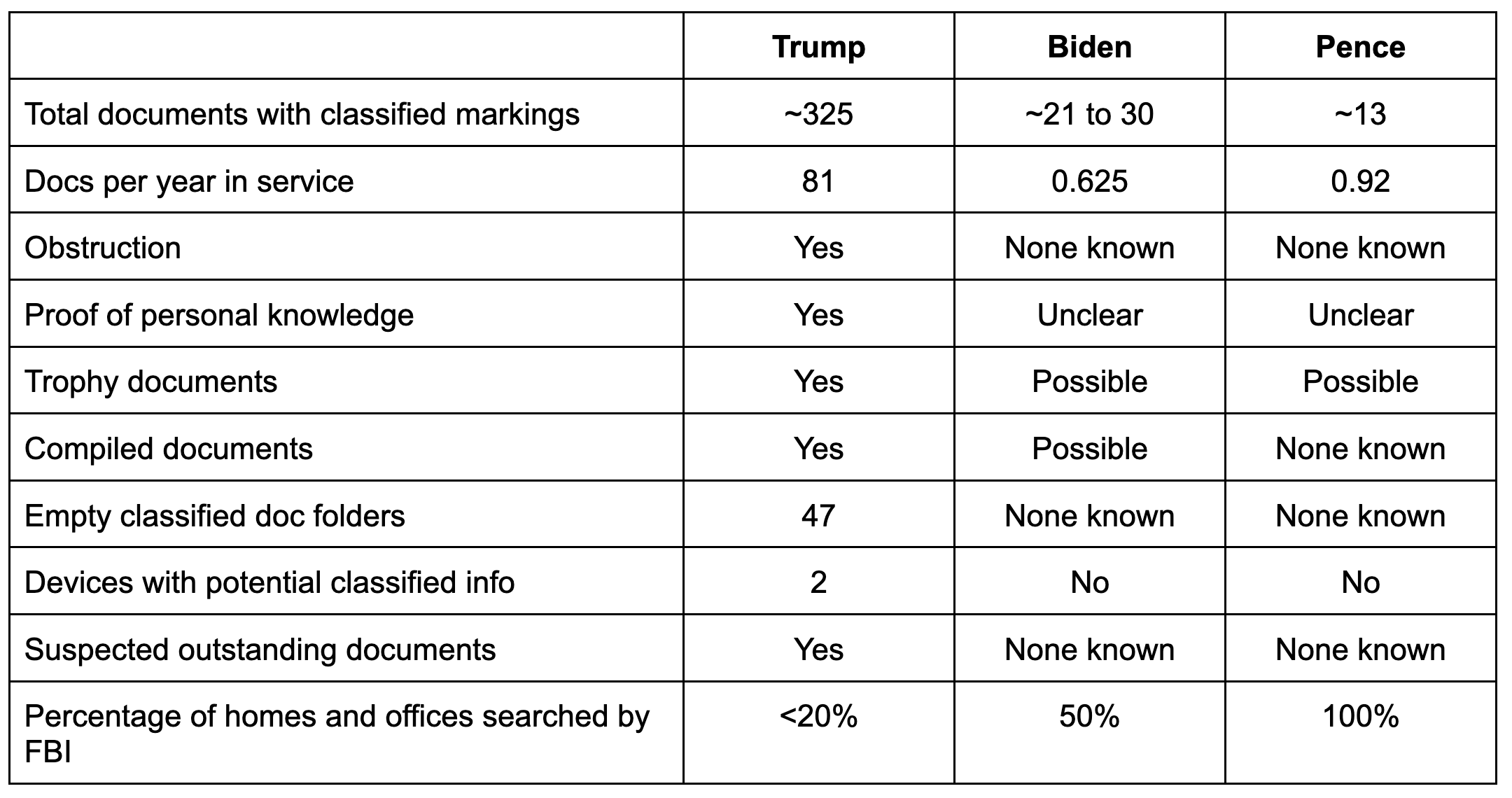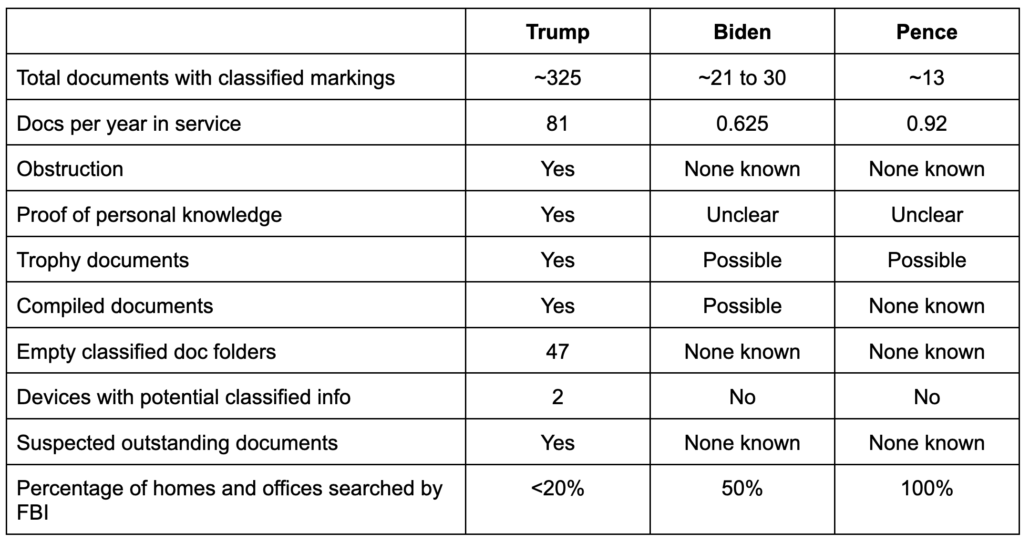Happy Crime-Fraud Exception Day, for Those Who Celebrate
Today marks the calendar start of celebration season for Mr. EW and I; all our big dates are squished into a short period that, this year, might well culminate in the first of several indictments for the former President.
For the US political world, though, today marks crime-fraud exception day, the day that at least one of Trump’s attorneys will be obliged to testify about how Trump lied to his lawyers to try to get away with hoarding stolen classified documents.
Because Evan Corcoran (and possibly Georgia attorney Jennifer Little) will testify today, I thought it a good day to update the list of attorneys who were or have been witnesses or who may be subjects in one or more investigations into Trump.
Since the Stormy Daniels payment may lead to Trump’s first indictment, Michael Cohen gets pride of place at number one on this list, a reminder that for seven years, Trump lawyers have been exposing themselves to legal jeopardy to help him cover things up.
The following lawyers have all — at a minimum — appeared in subpoenas pertinent to one or another of the investigations into Donald Trump, and a surprising number have testified before grand juries, including at least three with (Executive Privilege) waivers. To be clear: Many have no legal exposure themselves, but are instead simply witnesses to the efforts made to keep Trump in line before they were replaced with lawyers who were willing to let Trump do whatever he wanted, legal or no. But some of these lawyers have had legal process served against them, and so may themselves be subjects of one or multiple investigations.
- Michael Cohen (hush payment): convicted felon whose phones were seized April 9, 2018
- Rudolph Giuliani (Ukraine, hush payment, Georgia, coup attempt): phones seized in Ukraine investigation April 28, 2021, received subpoena for billing records in fundraising investigation around December 2022
- John Eastman (Georgia, coup attempt): communications deemed crime-fraud excepted March 28, 2022; phone seized June 22, 2022
- Boris Epshteyn (stolen documents, coup attempt, Georgia): testified in Georgia grand jury; phone seized in September after which he retroactively claimed to have been doing lawyer stuff
- Sidney Powell (fraud, coup attempt, Georgia): Subpoenas sent in fraud investigation starting in September 2021; testified before Georgia grand jury; appeared in November subpoena
- Jeffrey Clark (coup attempt): May 26 warrant for cloud accounts and phone seized June 22, 2022
- Ken Klukowski (coup attempt): May 26 warrant for cloud accounts
- Victoria Toensing (Ukraine, coup attempt): Phone seized in Ukraine investigation April 28, 2021, on June and November subpoenas
- Brad Carver (Georgia and fake elector): phone contents seized June 22
- Jenna Ellis (coup attempt and Georgia): Rudy’s sidekick, censured by CO Bar for
lyingserial misrepresentations, on June and November subpoenas - Kenneth Cheesbro (fake elector, Georgia): included in June and November subpoenas
- Evan Corcoran (stolen documents): testified before grand jury in January, testifies under crime-fraud exception on March 24
- Christina Bobb (coup attempt, Georgia, stolen documents): interviewed in October 2022 and appeared before grand jury in January, belatedly asked for testimony in Georgia
- Stefan Passantino (coup attempt obstruction and financial): included in November subpoenas, alleged to have discouraged full testimony from Cassidy Hutchinson
- Tim Parlatore (stolen documents): appeared before grand jury in December 2022
- Jennifer Little (Georgia and stolen documents): ordered to testify under crime-fraud exception
- Alina Habba (stolen documents, NYS tax fraud): testified before grand jury in January
- Bruce Marks (coup attempt): included in November subpoena
- Cleta Mitchell (coup attempt and Georgia): included in November subpoenas
- Joshua Findlay (coup attempt): included in June subpoenas
- Kurt Olsen (coup attempt): included in November subpoenas
- William Olson (coup attempt): included in November subpoenas
- Lin Wood (coup attempt): included in November subpoenas
- Alex Cannon (coup attempt, financial, stolen documents)
- Eric Herschmann (coup attempt, Georgia, financial, stolen documents)
- Justin Clark (coup attempt and financial): included June and November subpoenas
- Joe DiGenova (coup attempt): included in June and November subpoenas
- Greg Jacob (coup attempt): grand jury appearances, including with Executive Privilege waiver
- Pat Cipollone (coup attempt): grand jury appearances in summer and — with Executive Privilege waiver — December 2
- Pat Philbin (coup attempt and stolen documents): grand jury appearances in summer and — with Executive Privilege waiver — December 2
- Matthew Morgan (coup attempt): included in November subpoenas
Tim Parlatore is the latest addition to this list, based off someone’s decision to reveal Parlatore’s testimony to the stolen documents grand jury in December. As ABC reported, Beryl Howell ordered him to testify after he belatedly revealed that investigators he hired had found four documents with classification marks in a box brought back to Mar-a-Lago after the August 2022 search (he emphasizes that he did so without a subpoena, but this was an effort to stave off a finding of contempt).
The Dec. 22 testimony from attorney Timothy Parlatore was ordered after months of wrangling between Trump’s attorneys and officials in the Justice Department, who had grown increasingly concerned that Trump still continued to hold onto classified documents after more than 100 were discovered in the August 8 search, sources said.
In fact, just days before his testimony, Parlatore revealed to the DOJ and D.C. district court Judge Beryl Howell that a search of Mar-a-Lago conducted by Trump’s legal team on Dec. 15 and 16 had discovered four additional documents with classification markings, according to sources.
[snip]
While Judge Howell declined to hold Trump or his legal team in contempt at a Dec. 9 hearing, sources said, she did order Parlatore to testify on issues surrounding a signed certification he had provided that outlined the results of his team’s searches of locations where records responsive to the DOJ’s original subpoena could be located.
Howell also suggested at the hearing that Trump’s legal team include Mar-a-Lago in their list of locations to be searched again, despite the FBI’s previous court-authorized search of the property months earlier, sources said.
On Dec. 16, following a two-day search of Mar-a-Lago, Parlatore submitted a revised certification that acknowledged the discovery of the four additional documents in a closet near Trump’s office, sources said.
This explanation makes no mention of the classified folder found — presumably during the same search of Mar-a-Lago done at Howell’s suggestion — in Trump’s bedroom. Parlatore, who was brought in to do searches to give the patina of reliability to the earlier subpoena non-compliance, did not voluntarily hand over that folder; instead, DOJ subpoenaed it. In the wake of disclosures about that, Parlatore went on TV and made the ridiculous claim that the former President has nothing better to use to cover up a light on his bedside phone than random folders that once contained classified records, random folders that were not found during the FBI’s August 8 search.
Nor does this explanation mention the laptop with the documents marked classified (now numbered as four) also turned over.
Perhaps the most important detail this Parlatore-friendly story left out, however, is the way Trump’s team fought unsuccessfully to keep the names of the people who did the searches secret. After Howell ordered them to share those names in January, they testified before the grand jury, after Parlatore had already done so.
In this story, seeded the day before Corcoran testifies before the grand jury, that belatedly reveals Parlatore’s testimony before the grand jury, he makes claims of prosecutorial misconduct.
Parlatore, when reached for comment by ABC News, said, “I voluntarily and happily chose to go into the grand jury so that I could present my client’s case to them in the context of our search efforts. During my testimony, it was clear that the government was not acting appropriately and made several improper attempts to pierce privilege and, in my opinion, made several significant misstatements to the jury which I believe constitutes prosecutorial misconduct.”
Had Parlatore really believed something amounted to prosecutorial misconduct, we would have heard about it in December — though that would have required revealing how documents marked as classified got moved back to Mar-a-Lago after the August search. Had Parlatore really believed something amounted to prosecutorial misconduct, he would have said that on TV instead of sharing his bullshit story about covering up the light on a phone.
He didn’t. He didn’t make this claim until the night before Corcoran is set to testify about the adequacy of Mar-a-Lago searches Corcoran did six months before the one Parlatore did.
In between the time Parlatore testified to the grand jury in December and today, though, Parlatore made this bizarre claim about the possibility that Boris Epshteyn, described here as the gatekeeper between Trump and the lawyers, could be a subject of the investigation. (This story, dated March 14, followed the February 12 bullshit claim about the light by the side of the bed by just over a month.)
Mr. Epshteyn’s legal role with Mr. Trump, while less often focused on gritty legal details, has been to try to serve as a gatekeeper between the lawyers on the front lines and the former president, who is said to sometimes roll his eyes at the frequency of Mr. Epshteyn’s calls but picks up the phone.
“Boris has access to information and a network that is useful to us,” said one of the team’s lawyers, Timothy Parlatore, whom Mr. Epshteyn hired. “It’s good to have someone who’s a lawyer who is also inside the palace gates.”
Mr. Parlatore suggested that he was not worried that Mr. Epshteyn, like a substantial number of other Trump lawyers, had become at least tangentially embroiled in some of the same investigations on which he was helping to defend Mr. Trump.
“Absent any solid indication that Boris is a target here, I don’t think it affects us,” Mr. Parlatore said.
As I’ve noted, DOJ almost certainly believes that Trump still has classified documents. DOJ almost certainly believes that the searches Parlatore did in November and December not only weren’t adequate, but were proven to be inadequate when his investigators found classified documents that had been moved back to Mar-a-Lago after the initial search.
They tried to obtain those documents by holding lawyers who had attested to searches in contempt back in December. Instead, Beryl Howell made them do more investigation first, culminating in what may be the last order she issued as Chief Judge ordering Corcoran to testify.
One possible outcome of today’s testimony is that someone finally gets held in contempt, someone finally risks jail time until such time as an adequate search of all of Trump’s properties is conducted. And that may be why Tim Parlatore chose this moment to announce his inclusion on the ever-growing lists of Trump lawyers who may be witnesses or may be subjects of his investigations.
Update: Going through old posts and thought I’d link this one from August 23, 2022, where I noted that two of Trump’s lawyers were either witnesses or co-conspirators in the stolen document case. It seemed prescient then, but jeebus, the number turns out to be at least 11 by now.



